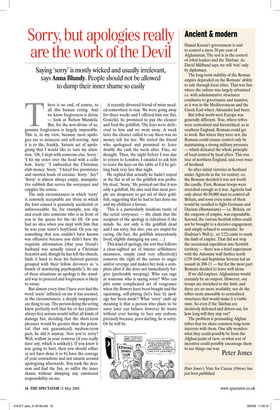Ancient & modern
Hamid Karzai’s government is said to control a mere 30 per cent of Afghanistan. The rest is in the control of tribal leaders and the Taleban. As David Miliband says, we will ‘win’ only by diplomacy.
The long-term stability of the Roman empire depended on the Romans’ ability to rule through local elites. That was fine where the culture was largely urbanised i.e. with administrative structures conducive to governance and taxation, as it was in the Mediterranean and the Greek East where Alexander had been.
But tribal north-west Europe was generally different. True, where tribes were centralised and hierarchical, as in southern England, Romans could get to work. But where they were not, the Romans could ensure control only by maintaining a strong military presence — which defeated the whole principle of local control by local elites. This was true of northern England, and even truer of Scotland.
So after initial victories in Scotland under Agricola in the 1st century AD, the Romans decided it was not worth the candle. First, Roman troops were stretched enough as it was. Agricola had only about 40-50,000 men to control all Britain, and soon even some of them would be recalled to fight Germans and Dacians (Rumanians) — i.e. Britain, on the outposts of empire, was expendable. Second, the various Scottish tribes could not be brought to a decisive engagement, and simply refused to surrender. So Hadrian’s Wall (c. AD 122) came to mark the limit of empire. That did not stop the occasional expedition into Scottish territory — there was a brief experiment with the Antonine wall further north (139-164) and Septimius Severus led an assault in 208-11 — but for the most part Romans decided to leave well alone.
If we did empires, Afghanistan would certainly be an outpost. However, our troops are stretched to the limit, and there are no more available; nor do the tribes seem amenable to centralised structures that would make it a viable state. So even if the Taleban are decisively defeated and driven out, for how long will they stay out?
The problem is persuading Afghan tribes that we share common long-term interests with them. One idly wonders what they could possibly be from the Afghan point of view; or what sort of incentive could possibly encourage them










































































 Previous page
Previous page